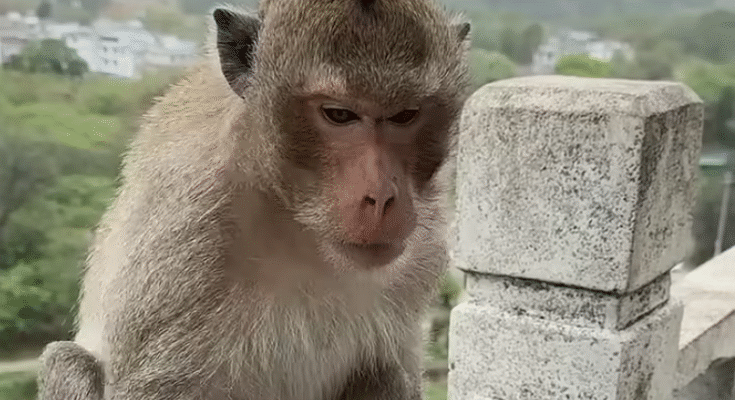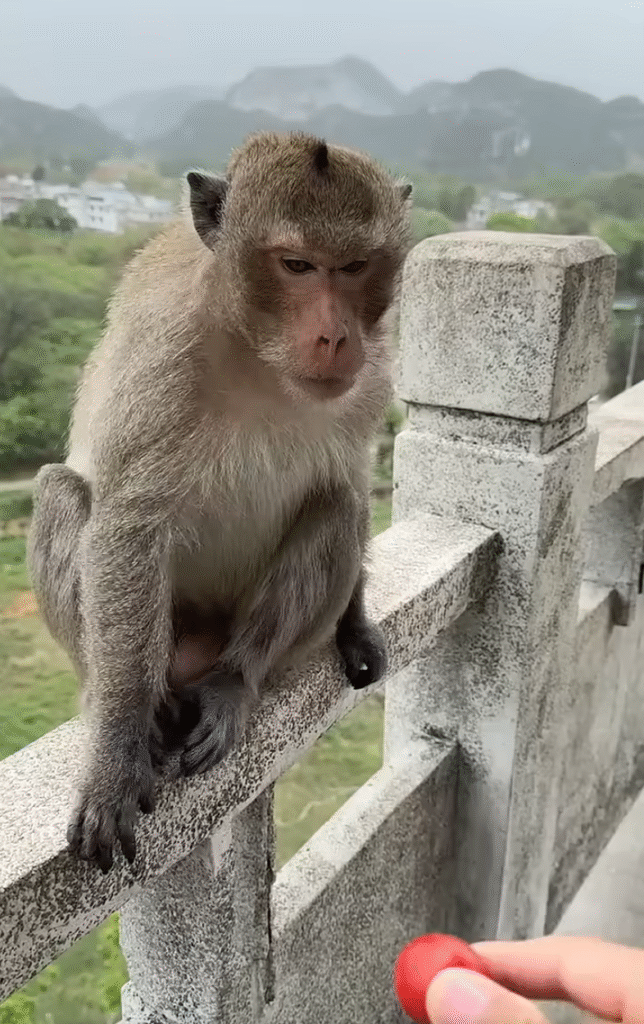
In a quiet little village tucked between rolling green hills and tall mango trees, the people had long shared their land with a mischievous band of monkeys. These monkeys were clever, playful, and endlessly curious. They had grown used to observing humans closely, picking up their habits, stealing snacks from their baskets, and imitating whatever they found amusing. But one particular summer, something unusual happened—something that proved these monkeys were learning more quickly than anyone expected.
It all started with a farmer named Dara. He was known for his sweet jackfruits and guavas that grew in his garden. Unfortunately, the monkeys had also discovered his treasures. Almost every week, Dara would wake to find half of his fruits gone, skins scattered on the ground, and the monkeys swinging away in triumph. Annoyed, he decided to outsmart them by building a wooden box trap. He placed two delicious bananas inside, leaving the lid slightly open.
The first morning he set it, the monkeys gathered around with bright, suspicious eyes. They sniffed the air, tilting their heads as though whispering among themselves. A younger monkey stretched out his tiny hand but quickly pulled it back. The elder monkey, whom the villagers called Papa Longtail, carefully examined the box. He had seen humans put food in strange containers before. He tapped it, sniffed it, then pulled on the lid. At first, the trap snapped shut, startling the group. They screeched and leapt back into the trees.
But instead of running away for good, the monkeys sat in the branches, studying. Papa Longtail reached out again, this time pulling the banana gently toward him without touching the lid. The banana rolled out of the trap, and the monkeys cheered in their chattering voices. That day, they learned their first important lesson:
👉 Not everything that looks dangerous must be avoided—sometimes you just need to understand how it works.
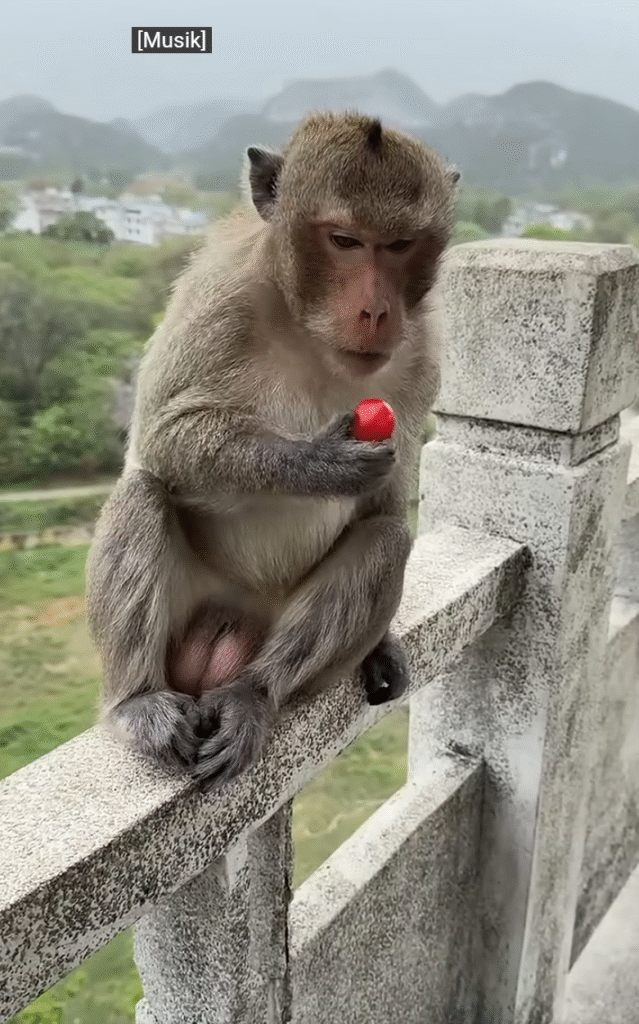
From then on, the monkeys became little problem-solvers. Dara’s trap stopped working, because they never stepped inside. Instead, they poked and tested every object before committing themselves.
A week later, another challenge arrived. A group of village children loved playing near the riverbank. They carried slingshots, not to hurt the monkeys but to scare them away from stealing their snacks. The monkeys quickly realized that whenever the children raised their hands with a certain motion, a small stone would fly. The younger monkeys panicked and scattered at every shout or movement. But Papa Longtail and a few observant ones sat still, watching carefully.
One afternoon, as the children aimed again, Papa Longtail gave a sharp bark. Instead of panicking, the troop split into two groups. One group pretended to flee noisily, drawing the children’s attention. Meanwhile, the other group sneaked behind, grabbed a bag of sticky rice, and darted off. The trick worked perfectly.
That was their second important lesson:
👉 Sometimes survival isn’t about strength but about strategy and teamwork.
From that day forward, the monkeys grew even bolder. They didn’t just steal—they planned. They communicated with squeaks, tail flicks, and even imitated human gestures. If one monkey pointed, the others understood where to go. If another gave a warning cry, they all froze and disappeared into the trees.
The villagers began to notice. “These monkeys are not just playing anymore,” said old Grandma Lina, shaking her head. “They are learning like children at school.”
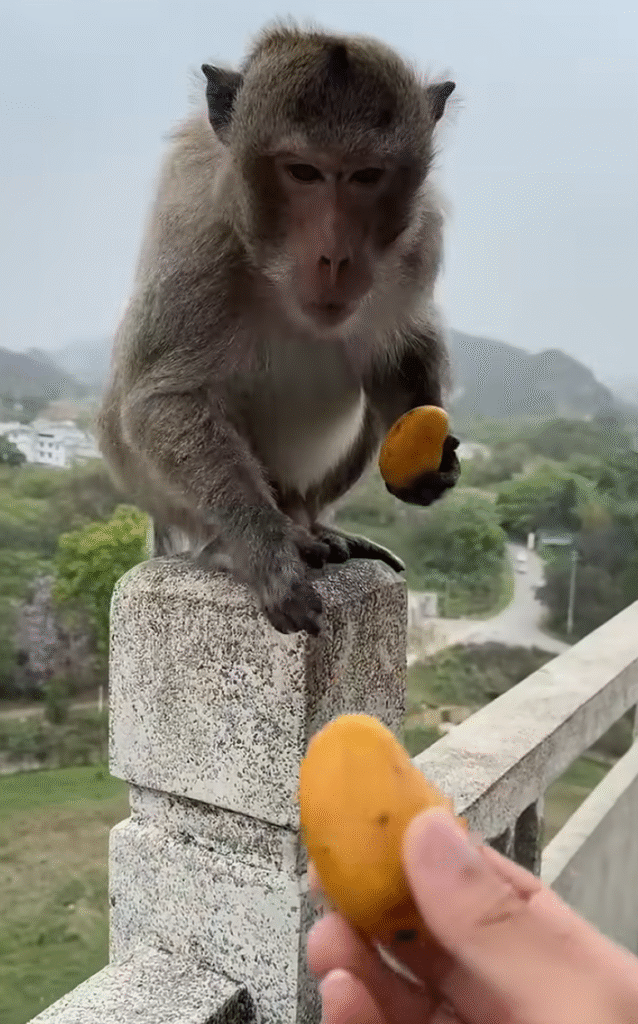
One remarkable incident proved her point. A traveling merchant arrived with baskets full of peanuts and corn. He left them under a tree while arranging his cart. The monkeys swarmed the baskets instantly. But instead of fighting over the food as they usually did, they organized themselves. Two monkeys climbed down to untie the ropes. Another held the lid. The smallest monkey quickly snatched handfuls and distributed them among the others. Within minutes, they were gone—leaving the baskets neat and nearly empty.
The merchant returned, stunned. “They didn’t even make a mess,” he exclaimed. “It was like watching little thieves with a plan!”
Stories spread quickly through the village about how the monkeys had learned to learn. They no longer repeated mistakes. If one monkey got caught, the others never tried the same trick again. If they discovered a new method, they taught it to the group. Their intelligence became a kind of legend.
Yet with intelligence came daring adventures.
One evening, Dara set out a basket of guavas on his porch, determined to guard it himself. He sat quietly with a stick in his hand. But the monkeys, watching from the branches, had learned something new: humans often lose patience. They waited. An hour passed. Dara’s eyes grew heavy. He shifted, yawned, and leaned back. At that exact moment, three monkeys dashed forward. One distracted Dara by knocking over a pot, while the other two snatched the guavas. By the time Dara jumped up, they had already disappeared into the forest.
He threw his hands in the air, half angry, half amazed. “They’re becoming too smart for us!” he laughed bitterly.
But intelligence also taught the monkeys caution. They never lingered after a theft. They grabbed what they needed and vanished. To the villagers, it seemed as if the monkeys had discovered their own golden rule:
👉 Learn quickly, act cleverly, and always run away before danger arrives.
This pattern repeated again and again. When the villagers set new traps, the monkeys studied them, figured them out, and escaped. When dogs were released, they distracted them with fake chases, then slipped away. It was no longer just instinct—it was learning, sharing, and applying knowledge.
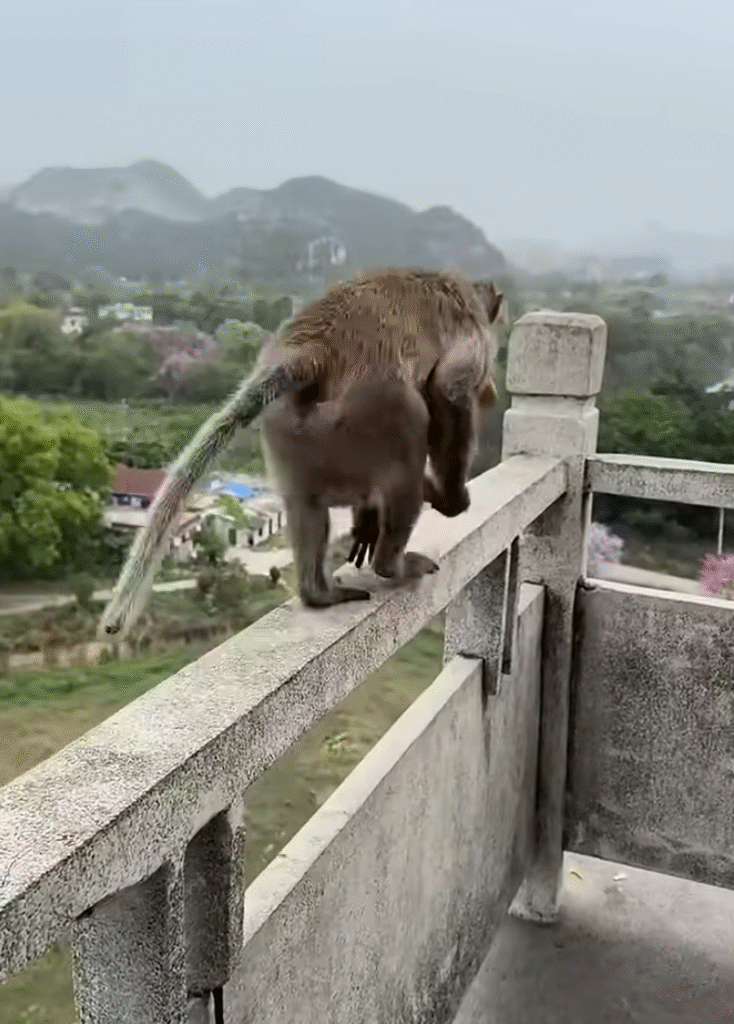
Over time, the villagers stopped seeing the monkeys as simple troublemakers. Instead, they began to respect their cleverness. Teachers even told children: “See how the monkeys work together? That’s why we must study hard, share knowledge, and protect each other.”
In a way, the monkeys had become little teachers themselves.
But there was also a deeper message hidden in their behavior. Life in the forest was not easy. Food was scarce at times, and danger always lurked—snakes, storms, and human anger. By learning to learn two simple but powerful things—understanding problems and using teamwork to survive—the monkeys had created a way of life. They never fought each other for long, never stayed in one place too boldly, and always trusted in the wisdom of escape.
One cool night, as the moonlight bathed the treetops, the villagers heard the monkeys laughing and chattering. Children asked their grandmother, “Why do they sound so happy?”
Grandma Lina smiled and said, “Because they are clever. They know how to enjoy life. They take only what they can carry, and when trouble comes, they don’t argue—they run away. Perhaps we humans could learn a little from them too.”
And indeed, the monkeys continued their playful raids, never cruel, never greedy, always smart enough to live another day. Their legend in the village became this:
“The monkeys who learned two things—how to think, and when to run.”
